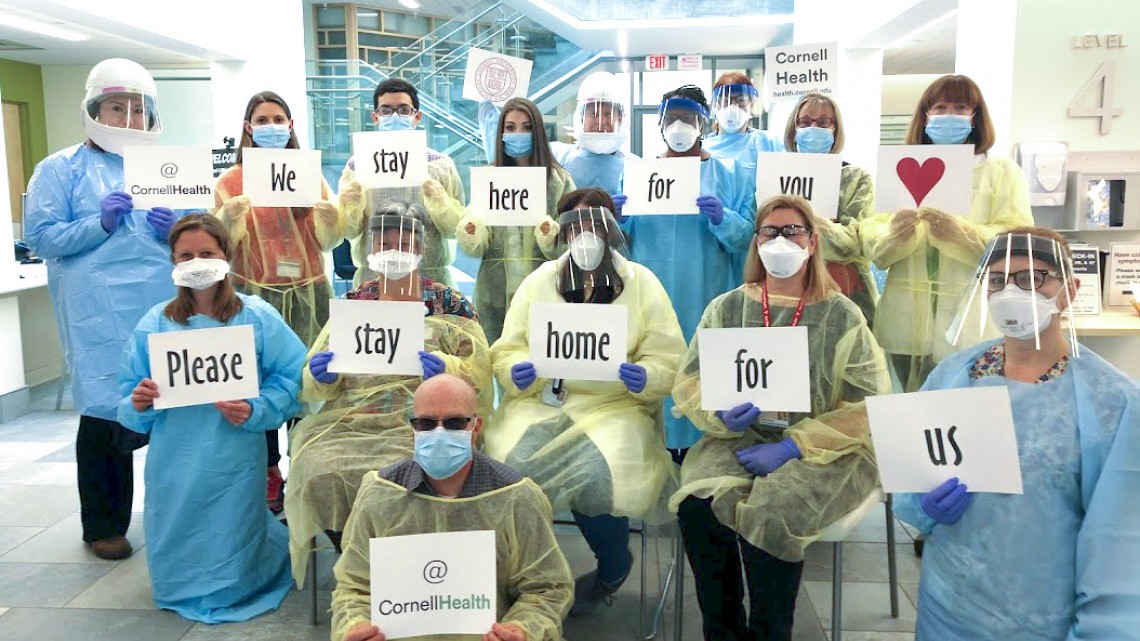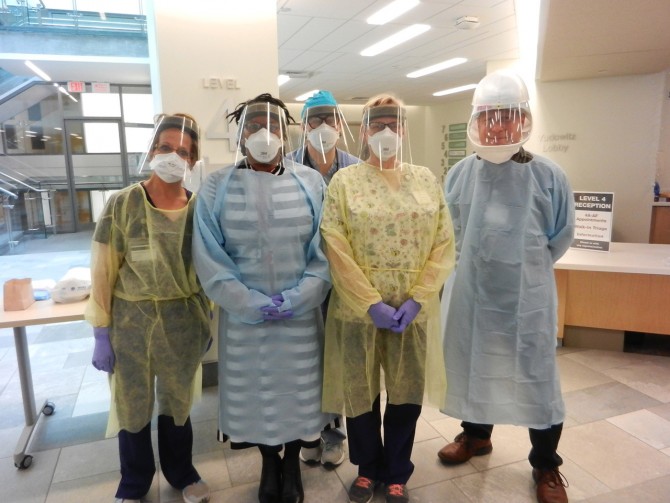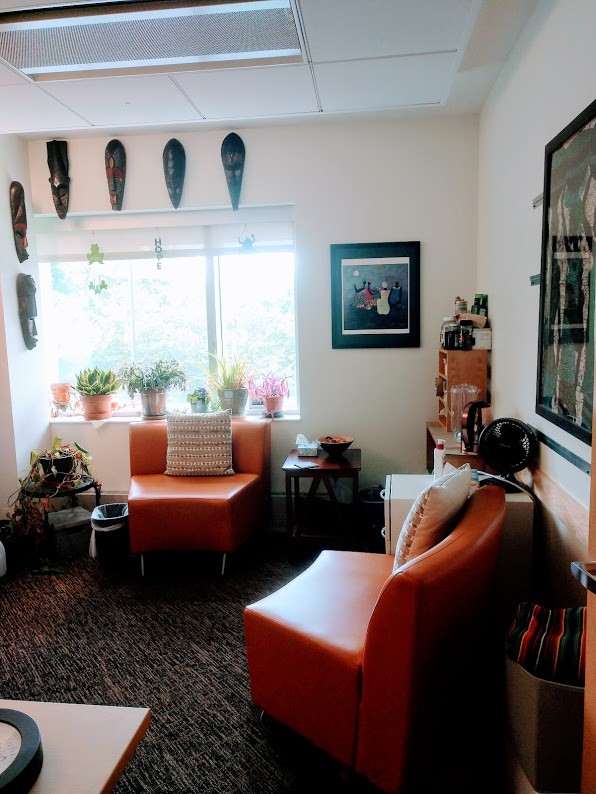
Clinical staff members at the forefront of Cornell Health’s fight against the spread of coronavirus urge community members to stay home to reduce the spread of COVID-19.
Class of 1955’s timely investment: supporting student health
By Linda Copman
Earlier this year, members of the Class of 1955 celebrated their 65th reunion. These octogenarians have also been steadfast supporters of Cornell Health.
In 2015, the Class of 1955 and Peter Schluter ’55 gave a $100,000 gift to name a room in the new Cornell Health facility. In July 2020, the class responded to the call again, donating $25,000 from their class treasury to support upgrades to the electronic health records system at Cornell Health.
The upgrades boost the unit’s pandemic response by enabling contactless self-check-in for telehealth and in-person appointments, coordinated management of Cornell Health COVID-19 testing clinics, and efficient monitoring and support of students who are in isolation or quarantine.
“Cornell Health is grateful to the Class of 1955 for their generous and ongoing support of student health,” said Sharon McMullen, assistant vice president of student and campus life for health and well-being. “Gifts like theirs allow Cornell Health to cultivate the staffing, physical spaces and systems necessary to stay on the cutting edge of college health.”
A desire to do the most good
Both gifts were initiated by Michael Avery ’55, a loyal Cornellian and former class president who was diagnosed with ALS, also known as Lou Gehrig’s disease, in March 2020. Avery died in June, a few days before his 65th reunion.
Though Avery did not live to see the new gift come to fruition, current class president Bill Doerler ’55 worked with other class officers to finalize the gift in July. “The $25,000 gift from the class seemed appropriate,” he said, “given the COVID crisis and the fact that Cornell Health could really use these enhanced software capabilities to deal with the pandemic.”
Said Fred Antil ’55, also a past class president: “This is where Michael thought our money could do the most good.”
A space dedicated to student health
Counseling Room 354 at Cornell Health was supported by a gift from the Class of 1955 in honor of their 60th Reunion in 2015.
This space is home base for a therapist from Counseling and Psychological Services (CAPS) who, as part of a CAPS outreach team, works closely with faculty and staff members when they have concerns about the well-being of a student. Team members share information and resources and work with the faculty or staff member to explore strategies for helping the student.
“The pandemic has created new stressors for many students, including the need to be attentive to COVID-related risks, reduced in-person social support, and uncertainty about the future,” McMullen said. “There’s also grief about missing out on experiences, postponing hopes or dreams, or losing friends or family members to COVID-19. For some, there are unexpected financial pressures. And for many students, these stressors are compounded by the disproportionate impact of COVID-19 on their racial or cultural communities and xenophobic reactions to the pandemic.
“We anticipate,” she said, “that faculty and staff will need information and guidance as students continue to experience COVID-related stressors during the fall semester.”
A rapid response to the pandemic
The recent gift to supplement the electronic health records system has already been put to good use. Cornell Health was able to purchase and implement the new modules before the number of COVID cases began to climb in September. The software is designed to streamline several processes, including contact tracing, quarantine monitoring, telehealth appointment check-ins, and routing of orders and results for COVID-19 testing.
The new modules allow Cornell Health to link individual test results in order to better track and manage students placed in quarantine. They also provide a mechanism for touchless check-in for in-person visits to Cornell Health.
While in-person visits are extremely limited during the pandemic, “we are doing all we can to minimize possible exposures to COVID-19 in clinical settings,” McMullen said.
“During this challenging and unprecedented time, the Class of 1955’s gift allows us to use emerging technologies to provide critical medical care and mental health support to our students,” McMullen said. “The national news is full of stories about colleges and universities that have struggled to open, or stay open, this fall. Cornell is relying on innovative strategies like these to help our campus succeed.”
Linda Copman is a writer for Alumni Affairs and Development.
This story originally appeared in the fall 2020 issue of Ezra magazine.
Media Contact
Get Cornell news delivered right to your inbox.
Subscribe



